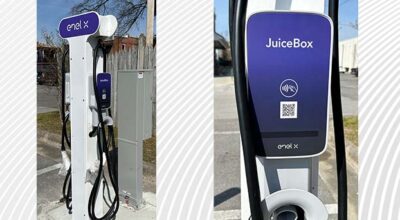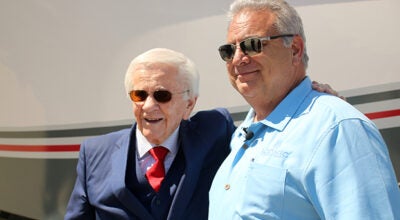Council strives to make enterprises self-sufficient
Published 3:26 pm Sunday, April 26, 2015
Some people may not know it, but the City of Washington has several enterprises it tries to operate as businesses. Hence, they are called enterprise funds.
The city’s main enterprise funds — the goal is to at least break even, if not make a profit — are water, sewer, wastewater, electricity, the airport, solid-waste disposal and cemetery. They generate revenue, have expenses and have their own fiscal accounts that are audited, just like the city’s general fund (day-to-day operations such as police, fire, EMS, parks, recreation, library services and the like).
Why a profit? Well, the thinking is that turning a profit means that fund has money to put back into its operation in terms of maintenance, major equipment purchases and other capital expenses. If an enterprise fund makes a profit or breaks even, that means it did not have to borrow money from another fund to make ends meet.
A self-sufficient fund does not have to rely on other funds to keep it going.
By far, the largest — and likely most-scrutinized — of the city’s enterprise funds is the electric fund. That fund’s recommended budget for the upcoming 2015-2016 fiscal year budget is at $38 million, which is 4.5 percent higher than the current budget for that fund.
The electric fund likely faces some major changes in the next fiscal year, considering a new law should open the door for a likely decrease in electric rates the city charges it customers.
Last month, Gov. Pat McCrory signed into law a bill that should help lower electric rates for many eastern North Carolina residents. The law concerns an agreement that allows Washington, Belhaven and other eastern North Carolina cities and towns to proceed with a sales agreement that should reduce electricity rates and spur economic development and job growth across the region.
The $1.2 billion agreement allows Duke Energy Progress to buy stakes in power-generation facilities now owned, in part, by the North Carolina Eastern Municipal Power Agency, which includes 32 cities and towns in eastern North Carolina.
If all NCEMPA members approve the agreement and it is implemented, electric rates for the members’ power customers are expected to decline, up to 20 percent in some cases. Doug Mercer, a Washington City Council member who regularly attends NCEMPA meetings, has said he hopes the agreement will result in Washington’s power customers seeing their electric rates decrease by about 10 percent.
For many years, NCEMPA customers have paid as much as 35 percent more than power customers in other parts of the state for electricity, a result of the power agency carrying nearly $2 billion in debt for around 33 years. In 2010, the movement to do something about that debt took on new life when several NCEMPA members explored withdrawing from NCEMPA. They faced several contractual and fiscal challenges if they did so.
In Washington’s case, about 70 percent of the city’s wholesale electric bill goes toward retiring the city’s share of that debt, according to city officials.
Many Washington Electric Utilities customers who are not city residents object to transferring money from the electric fund to the general fund. They contend that at least part of the money they pay on their electric bills is used to subsidize city operations, services and programs.
Some city officials have said the transfer from the electric fund to the general fund is similar to a private power company like Progress Energy paying a dividend to its stockholders. Eliminating the annual transfer — or reducing it — and making the general fund self-supporting likely would require finding revenue sources to replace the transfer amount, cutting expenses or a combination of the two, city officials have said.
Since about 2009, several councils have reduced the amount of money transferred annually from the city’s electric fund to the city’s general fund. In previous fiscal years, the annual transfer from the electric fund to the general fund was a little more than $1 million. The electric-fund transfer in this year’s budget amounted to $470,000. The proposed budget calls for the same transfer amount, but the council has final say on what that amount will be.
Council members have said they want to eventually wean the general fund off transfers from the electric fund.
WEU also makes a payment, known as a payment in lieu of taxes (or PILOT), to the general fund. If WEU were a private, investor-owned utility, it would be paying taxes on the property it owns within the city. So, instead of paying taxes, WEU makes a payment equivalent to what it would pay in taxes if it were a privately owned power provider. The proposed budget allocates $140,338 for this payment
The proposed budget also allocates $190,000 (payment in lieu of sales tax revenue) because of the loss of revenues created by changes in the sales-tax distribution formula adopted by the N.C. General Assembly last year.
The council begins a series of budget sessions at 6 p.m. Monday, followed by other 6 p.m. sessions Tuesday and Wednesday. If needed, a fourth session would be held at 6 p.m. Thursday.






